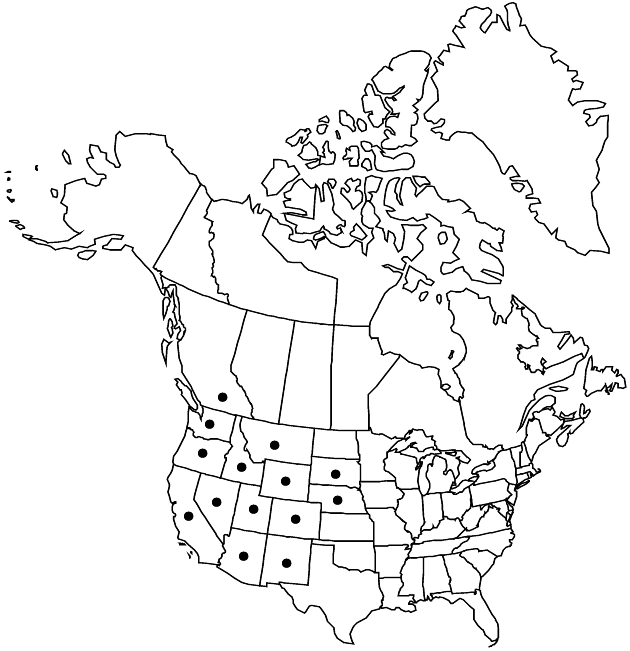Difference between revisions of "Chrysothamnus viscidiflorus"
Trans. Amer. Philos. Soc., n. s. 7: 324. 1840.
RevisionBot (talk | contribs) m (Bot: Adding category Revision Pending) |
RevisionBot (talk | contribs) m (Bot: Adding category Revised Since Print) |
||
| (One intermediate revision by one other user not shown) | |||
| Line 89: | Line 89: | ||
|publication year=1840 | |publication year=1840 | ||
|special status=Endemic | |special status=Endemic | ||
| − | |source xml=https:// | + | |source xml=https://bitbucket.org/aafc-mbb/fna-data-curation/src/2e0870ddd59836b60bcf96646a41e87ea5a5943a/coarse_grained_fna_xml/V19-20-21/V20_418.xml |
|tribe=Asteraceae tribe Astereae | |tribe=Asteraceae tribe Astereae | ||
|genus=Chrysothamnus | |genus=Chrysothamnus | ||
| Line 99: | Line 99: | ||
[[Category:Treatment]] | [[Category:Treatment]] | ||
[[Category:Chrysothamnus]] | [[Category:Chrysothamnus]] | ||
| − | [[Category: | + | [[Category:Revised Since Print]] |
Latest revision as of 18:25, 6 November 2020
Shrubs, 10–120 cm; with woody, branched caudices, bark whitish tan, becoming gray, flaky and fibrous with age. Stems ascending, green, soon becoming tan, glabrous or puberulent, sometimes resin-dotted, often resinous. Leaves ascending, spreading, or deflexed; sessile; blades with evident midnerves plus sometimes 1–2 pairs of smaller, collateral nerves, linear to lanceolate, 10–75 × 0.5–10 mm, flat or sulcate, often twisted, margins often undulate, sometimes ciliate, apices acute to apiculate, faces glabrous or puberulent. Heads in dense, rounded cymiform arrays (to 7 cm wide), not overtopped by distal leaves. Involucres cylindric to obconic or campanulate, 4–7 × 1.5–2.5 mm. Phyllaries 12–24 in 3–5 series, in spirals or weak vertical ranks, mostly tan, green to brown subapical patch often present, midnerves usually evident (at least distally), linear-oblong, lanceolate to elliptic or obovate to spatulate, 1–5 × 0.5–1.2 mm, unequal, chartaceous, margins scarious, eciliate or ciliolate to erose-ciliolate, flat or convex, sometimes weakly keeled, apices acute to obtuse or rounded, sometimes apiculate, flat, faces glabrous or puberulent. Disc florets (3–)4–5(–14); corollas 3.5–6.5 mm, lobes 0.7–1.7 mm; style branches 2.2–3.2 mm (exserted beyond spreading corolla lobes), appendages 0.8–1.5 mm (length shorter than stigmatic portion). Cypselae tan to reddish brown, turbinate, 2.5–4.2 mm, ± 5-angled, moderately to densely hairy; pappi tan, 3.5–6 mm.
Distribution

B.C., Ariz., Calif., Colo., Idaho, Mont., N.Mex., Nebr., Nev., Oreg., S.Dak., Utah, Wash., Wyo.
Discussion
Subspecies 5 (5 in the flora).
Selected References
None.
Lower Taxa
Key
| 1 | Leaves flat, glabrous; corollas 3.5–4.5 mm; nc Arizona | Chrysothamnus viscidiflorus subsp. planifolius |
| 1 | Leaves twisted or hairy, or corollas 3.5–6.5 mm; w United States | > 2 |
| 2 | Distal stems, and frequently leaves, hairy | > 3 |
| 2 | Stems glabrous; leaves glabrous, margins ciliate | > 4 |
| 3 | Stems greenish, hirtellous to puberulent; leaves green, 3- or 5-nerved, 2–6 mm wide, abaxial faces hirsute to hirtellous, adaxial usually glabrous | Chrysothamnus viscidiflorus subsp. lanceolatus |
| 3 | Stems and leaves grayish green, densely puberulent; leaves 1–2(–4) mm wide; 1-nerved (sometimes 3-nerved proximally) | Chrysothamnus viscidiflorus subsp. puberulus |
| 4 | Leaves 0.5–1 mm wide; florets 3–4(–5); involucres ± turbinate | Chrysothamnus viscidiflorus subsp. axillaris |
| 4 | Leaves 1–10 mm wide; if 1 mm wide, involucres narrowly cylindric, and florets 4–14 | Chrysothamnus viscidiflorus subsp. viscidiflorus |